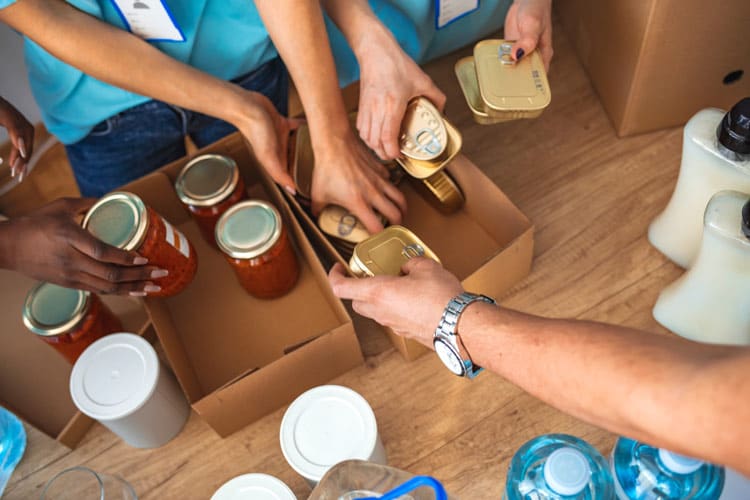You have gone through detox and completed your addiction treatment program. And you put in the hard work needed to achieve sobriety and feel committed to the work required to sustain it. You are healthier, happier, and feeling grateful. Feeling gratitude is part of recovery. It makes you want to help others and give back to the community.
Giving Back Makes a Difference
People in recovery from addiction are often encouraged to mentor others who are in treatment or just beginning their recovery journey. This is important not just for the mentee but for the mentor as well. Studies show that people who become AA sponsors are better able to maintain their own sobriety.
In addition, helping others bolsters physical and mental health in general. It gives you a feeling of accomplishment and a sense of purpose. Giving back reduces negative behaviors and thoughts, improves your self-esteem, and makes you feel empowered. It cultivates a more positive state of mind.
Here are a few other reasons why giving back is an important part of addiction recovery:
- Giving back helps you develop new skills.
- It allows you to gain new perspectives.
- It boosts your resilience.
- Giving back helps you discover meaning and purpose in life.
- It keeps you connected to others.
- Giving back makes your community a better place.
When you help another person, it is a way of saying thank you to the people who believed in you, supported your recovery, and helped you get sober.
Ways to Give Back
You don’t have to become an AA sponsor to help others. Some people may choose to help by making a personal commitment to another individual. Others may decide to embark on a career that is directly related to helping people in some way. Here are some other ways you can give back to your recovery community:
- Help at Your 12-Step Program
12-Step programs such as Narcotics Anonymous (NA) or Alcoholics Anonymous (AA) are peer support groups. They need members to be active and help out at meetings. You can give back to your group by volunteering to provide coffee and tea at meetings, set up and break down the chairs, or provide transportation to members. - Share Your Story
If you’re involved in a 12-step program or the alumni community of your treatment center, share your story. When you share your struggles of addiction and victories of recovery, you have a powerful impact on others. Your recovery story provides hope and inspiration to those struggling with addiction to drugs or alcohol. It shows lasting recovery is possible. - Volunteer in the Community
Every community offers many opportunities to volunteer. Choose to do something that interests you. If you love animals, volunteer at an animal shelter or local zoo. Or if you enjoy cooking, help out by cooking at a soup kitchen or senior center. If you love being in nature, volunteer to clean up a local or state park. You can volunteer at community organizations, hospitals, libraries, food banks, churches, and so many other places. - Help Out and Spend Time with Family and Friends
Show your family and friends you are grateful for their care and support. Take an elderly relative shopping or help clean up their yard. Volunteer to babysit, help around the house, or watch a child in a sports event or school concert. Take part in family activities. Host a game night, enjoy a meal together, go to the beach, or visit a park.
Don’t Forget to Take Good Care of Yourself
Volunteering is a way to care for your own spiritual development and your social connections. But it doesn’t take the place of nurturing your mind and body in other important ways. Make sure to eat a healthy diet, exercise regularly, and get enough rest. When you take good care of yourself, you show everyone that your recovery is important to you–and you’ll have more energy to give back to your community.
Help is Available
If you or a loved one is struggling with a drug or alcohol addiction, help is available. You are not alone. Addiction is a disease that can affect anyone. Now is the time to get the help you need. Call Anabranch Recovery Center located in Terre Haute, Indiana. We will answer your questions and help you begin your journey on the path to recovery.
Considering addiction treatment in Terre Haute, IN? For more information about Anabranch Recovery Center, and the services we offer, please call and speak with someone today at (888) 302-8095.
About the Author: 
Terry Hurley is a retired educational professional and freelance writer with more than fifty years of experience. A former reading specialist and learning center director, Terry loved her years working with children in the educational field. She has written extensively for print and online publications specializing in education and health issues. For the last six years, her writing focus has been on addiction and mental health issues.





